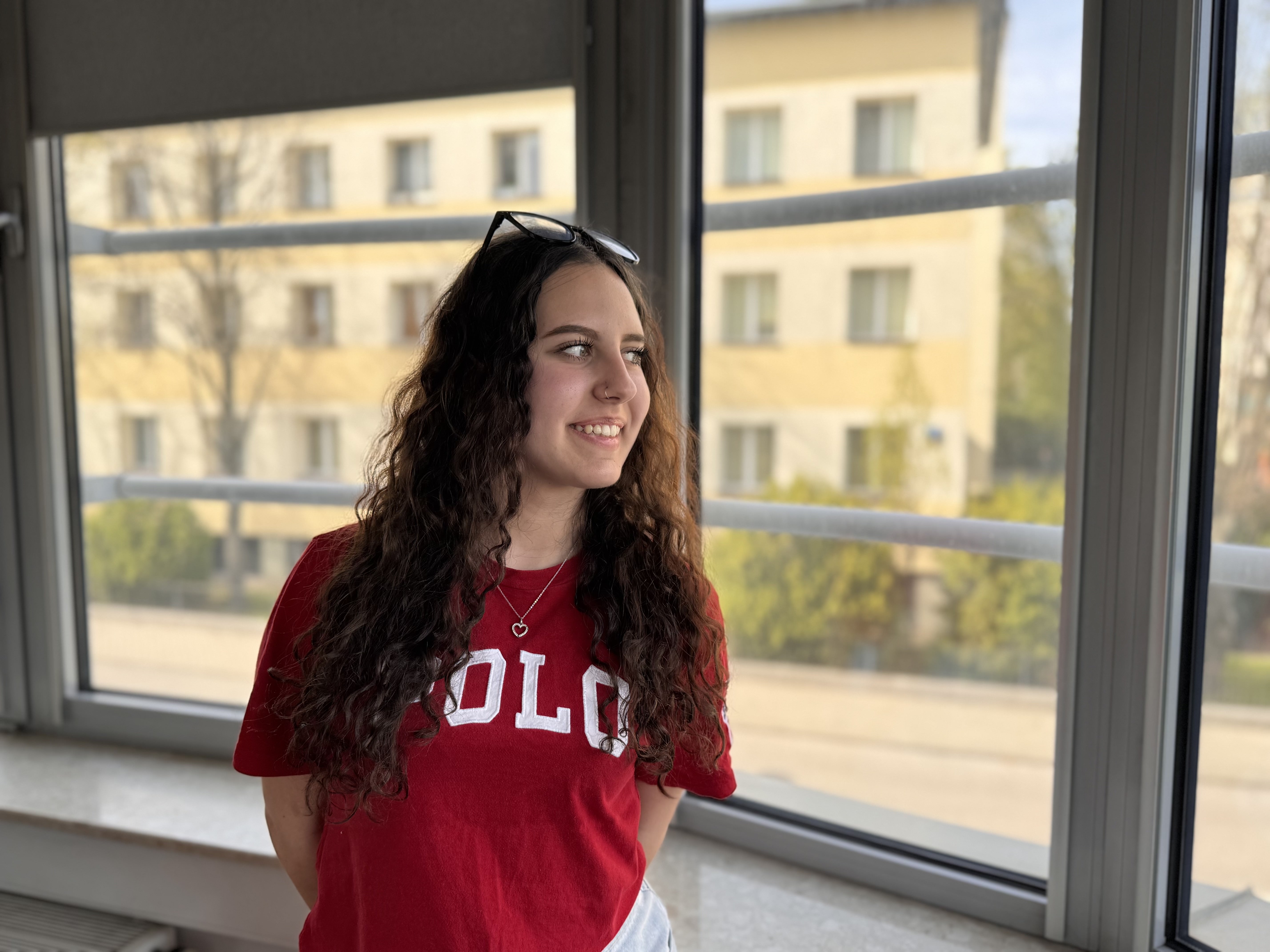Olga Stepanova, President of the Foundation’s Management Board, admits that the most difficult thing about the situation for the teenagers who arrived three years ago was that they were left to their own devices. Their parents, trying to find their way in the new reality themselves, were unable to adequately care for their children. The second problem was integration with school and the lack of command of Polish. We rarely think about the latter, although it affects not only Polish language grades, but is also a barrier to understanding written instructions in maths, physics, chemistry and other subjects.
If a child had good grades in Ukraine, this does not mean they will do well in Poland – mainly because of language difficulties.
– For many children who were used to being good students, this was the first reason why they did not want to go to school. Especially if there was pressure from parents to keep up their grades – , she adds.
Uczestniczka zajęć w Fundacji, fot. PAH 2025
People thought: this will last three months and we will go back home
Shortly after arriving, most parents and children thought they had moved only for a while.
– People thought: this will take three months, maximum six, and we will go back home. From the beginning, I convinced parents that their children needed to go to Polish schools because they needed embedding and integration – they needed to be in a peer environment – explains Olga Stepanova.
Postponed life syndrome
Kseniya Paluektava, a psychologist with the Foundation who supports children in their adaptation, recalls that children came to her in a very difficult emotional state in the first months.
– The Foundation received children and young people who had lost their entire lives: their home, their city, their friends. Everything they loved most – she explains. She emphasises that what they lacked most in the beginning was the sense of being part of a community.
The best thing she remembers from those early months is that the children kept saying they did not need new acquaintances. At the Foundation, when we ask about those first months after the escalation of the war, we hear: it is the postponed life syndrome.
– The children at that time were sort of frozen – they thought they had to wait and they would come back to their old lives in a few months.
Above all, it is about people
It has been three years of intensive work at the West-East Support Foundation. Kseniya Paluektava says that her main goal at the beginning was to ‘defrost’ her pupils. The psychologist provided social skills training and was keen to open the children up to new acquaintances. The whole team convinced the pupils and their parents that it was crucial for the children to go to Polish schools and to learn the language.
At the Foundation, children receive not only psychological support but also tutoring in the subjects they find most difficult and activities to develop their interests. But when we ask them why they like coming to the Foundation, everyone answers without exception: first and foremost, it is about the people we meet here.
Ósmoklasiści na kilka dni przed egzaminami uczestniczą w warsztatach odstresowujacych, fot. PAH 2025
They started dreaming again
Three years after the escalation of the war in Ukraine, the mood of the Ukrainian youth in Poland is completely different. Kseniya Paluektava says: they have started dreaming again! The Foundation supports eighth-graders in choosing a secondary school. Here they can think about what they want to do next in their life and what they would like to do in the future.
Fundacja oferuje zajęcia wyrównawcze z matematyki, fot. PAH 2025
When we ask psychologist Kseniya Paluektava how these dreams of Ukrainian children are changing, she says that the kids are slowly starting to dream of travelling and exploring other European countries (they have mainly thought of returning to Ukraine until now). Their approach to education has also changed. Young people think more and more seriously about getting an education, having a future in Poland, buying an apartment and putting down roots here.
The West East Support Foundation implements the Pajacyk mental and social support programme.
You can help children in Poland, too. Donate to Pajacyk: www.pajacyk.pl/wesprzyj.
Author: Magdalena Żarnawska, Polish Humanitarian Action



